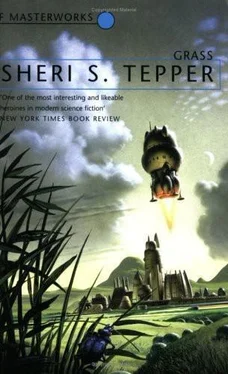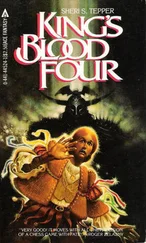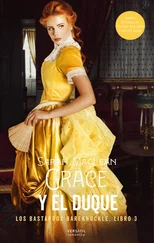Sheri Tepper - Grass
Здесь есть возможность читать онлайн «Sheri Tepper - Grass» весь текст электронной книги совершенно бесплатно (целиком полную версию без сокращений). В некоторых случаях можно слушать аудио, скачать через торрент в формате fb2 и присутствует краткое содержание. Город: London, Год выпуска: 2002, ISBN: 2002, Издательство: Gollancz, Жанр: Фантастика и фэнтези, на английском языке. Описание произведения, (предисловие) а так же отзывы посетителей доступны на портале библиотеки ЛибКат.
- Название:Grass
- Автор:
- Издательство:Gollancz
- Жанр:
- Год:2002
- Город:London
- ISBN:9781857987980
- Рейтинг книги:4 / 5. Голосов: 1
-
Избранное:Добавить в избранное
- Отзывы:
-
Ваша оценка:
- 80
- 1
- 2
- 3
- 4
- 5
Grass: краткое содержание, описание и аннотация
Предлагаем к чтению аннотацию, описание, краткое содержание или предисловие (зависит от того, что написал сам автор книги «Grass»). Если вы не нашли необходимую информацию о книге — напишите в комментариях, мы постараемся отыскать её.
Grass — читать онлайн бесплатно полную книгу (весь текст) целиком
Ниже представлен текст книги, разбитый по страницам. Система сохранения места последней прочитанной страницы, позволяет с удобством читать онлайн бесплатно книгу «Grass», без необходимости каждый раз заново искать на чём Вы остановились. Поставьте закладку, и сможете в любой момент перейти на страницу, на которой закончили чтение.
Интервал:
Закладка:
“My Quixote,” she told him. “Good horse. Wonderful horse.” She laid her face against his ebony muzzle, feeling the warm breath in her ear, for that instant forgetting Stella’s sulks and Rigo’s unfaithfulness and the Hippae and the hounds and the monsters that haunted her, the one called fox here, the one called plague elsewhere. “Let’s go out, out into the meadows.”
She did not bother to saddle him. This morning was not a time for schooling. This morning there would be only herself and Quixote, a togetherness more intimate than any other she knew. She wanted nothing between herself and his skin. She wanted to be able to reassure him with every muscle she had and take back his strength into herself. She lay along his neck as they went down from the cavern, along the curving way which led to the arena. The path went down along a winding defile, then up, topping a rise.
As they approached the rise, the horse’s skin quivered. He shook, silently, without even a whicker of protest, as though something deep within his great human-friend heart told him his only chance for continued life lay in making no sound. Only the breath came out of him like life leaving him Marjorie felt it, as she always felt the least movement he made She slid from his back in one fluid motion. Without going to the top of the rise, she knew what she would see there. Her stomach was in her throat, full of hot bile. She trembled as though half frozen. Still, one had to see. One had to know.
She pulled on the stallion’s shoulder. He had been trained to lie down, and he did it now, almost gladly, as though his legs would barely hold him. She stroked him once, for his comfort — or her own — then crawled on shivering arms and legs away, up the rise a little to one side of the path so that she could look down through the fringing grasses without being seen.
And they were there. Three of them, just as there had been three horses when she and Tony and Rigo had ridden here. Three Hippae doing dressage exercises, walking, trotting, cantering, changing feet to cross the arena on long diagonals. They did everything she had done with Octavo, did it casually, offhandedly, with a practiced ease, concluding with the three animals side by side, facing away from her, the saber tips of their neck barbs pointing at her like a glittering abatis, as threatening as drawn blades. Then they turned and looked up at the place where she was hidden, their dark eyes gleaming red in the light of dawn, soundless.
Amusement, she thought at first. A kind of mime. These Hippae had seen the humans and their horses and were amused at what these little off-world beasts had been doing with their human riders. She held the thought only fleetingly, only for a moment, trying to cling to it but unable to do so. They knew she was there. They knew she was watching. Perhaps they had timed this little exercise to coincide with her arrival…
It wasn’t amusement. Nothing in that red-eyed glare was amused. She did not stay to confront what it really was. She fled from the ridge as one in fear for her life, down to where the stallion lay as though he had been felled, urged him onto his trembling legs, and then half lay on his back as they first staggered then ran away, back to Opal Hill, back to human country, to add another horror to those she already knew.
What she had seen in those red eyes was mockery — mockery and something deeper. Something abiding and unforgiving. Malice.
James Jellico took himself home for lunch, as he often did. knowing his wife, Jandra, would be interested in the morning’s happenings. Jellico’s wife had no legs, and though she walked well enough on the elegant artificials he had obtained for her (a little bribery at the port, a little looking the other way when he was or, customs duty), she said it pained her to use the legs. There were implants one could use for the pain, but Jandra. who often said she didn’t like people fooling about with her head, preferred for the most part to wheel about the house in the half-person she had used since she was a child. About the house and the poultry yard as well. A third of the Jellys’ income came from homely Terran geese and ducks along with Semling szizz birds and fat, delicious wingless things from the planet Shame which Jandra called puggys.
He found his wife by the goose pen feeding greens to the geese, they gabbling and snatching grass fronds from one another and she humming to herself, as she did when content. “Ho, Jelly,” she greeted him “I’ve about decided to kill that one for dinner. She’s so smug it serves her right.”
The indicated goose succeeded in dragging the disputed shred of greens out of another’s beak and swallowing it, at the same time tipping her head to one side to get a good one-eyed goose-look at jelly. There was something in that cold, single-eyed stare, something in the line of beak and neck that shook him with a feeling which was at first deja vu and then horrified recognition.
“That girl,” he blurted. “She looked at me like that!” Then he had to tell her all about the girl and Ducky Johns and how strange it all was. “And it looked at me like that, tipped its head like that, as though it could see me better out of one eye than out of both. Like an animal.”
“Bird,” corrected Jandra.
“Bird or animal,” said Jelly patiently. “Any of ’em that don’t have what-you-call-it. Binocular vision. They’ll do that. Tip their heads to see you better.”
“Why do you say ‘it’ when it was a girl, Jelly. Why don’t you say ‘she’?”
“Habit, I guess. With those from Portside, he’s and she’s would be wrong as often as they’re right. They have he’s that look like she’s, and she’s that look like he’s, and it’s that look like either. I just say ‘it’ about them all.” He took the image file out of his pocket and put it in the imager, to show her.
Jandra shook her head, amazed at the ways of the world. She never tired hearing about them. Even simple things amazed her, though she was never shocked at the horrid ones. “I’ll have to go down to Ducky’s and see to this,” she announced in a tone which allowed no contradiction. She peered at the image, looking at the creature’s eyes. “It isn’t right something human and helpless should be left down there. Was there something wrong with the girl’s eyes?”
“Nothing I could see. Nothing wrong with any of it — her. Pretty, built nice, smooth hair and all. Just the face. Well, look at it.”
“What do you mean about her face, Jelly?”
“Empty,” he said after staring and thinking about it for a moment. “It looks just empty, that’s all.”
7
Some distance east of Opal Hill was a hidden cavern of the Hippae, one of many which could have been found on Grass if anyone had dared to look. Set deep into the hillside, its narrow openings shaded by great swaths of vermilion grasses which fell across the slender doors in gently moving curtains, the cavern was undergoing a periodic refurbishing. Arriving and departing at the northernmost slit were the creatures responsible, molelike migerers, diggers par excellence, scuttling now through the vermilion and the fuschia, out into the shorter. violet-colored grasses, their furry thigh-pockets full of loose earth recently scraped from the floor of the Hippae hall.
Inside that hall a shadowed emptiness was supported by pillars of rubbly stone, stones uncovered when the caverns were dug, each stone mortared into place with the adhesive which resulted from mixing migerer shit and earth. Marvelous creatures, the migerers — builders, almost engineers, certainly cave makers of no small talent who made similar, though smaller, caverns for themselves, each cavern linked to others by miles of winding tunnels.
Читать дальшеИнтервал:
Закладка:
Похожие книги на «Grass»
Представляем Вашему вниманию похожие книги на «Grass» списком для выбора. Мы отобрали схожую по названию и смыслу литературу в надежде предоставить читателям больше вариантов отыскать новые, интересные, ещё непрочитанные произведения.
Обсуждение, отзывы о книге «Grass» и просто собственные мнения читателей. Оставьте ваши комментарии, напишите, что Вы думаете о произведении, его смысле или главных героях. Укажите что конкретно понравилось, а что нет, и почему Вы так считаете.












